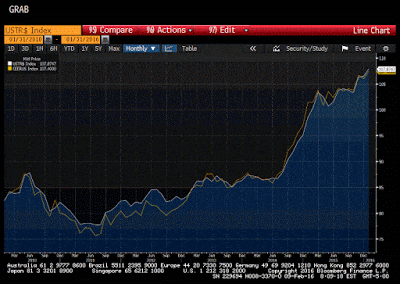Labor Economist and Fed Chair Yellen Should Like the Jobs Data
After another soggy Asian session, European markets have begun on a firm note, and US shares are trading broadly higher in Europe as well. Led by the beleaguered financial shares, and healthcare, the Dow Jones Stoxx 600 is up 2%. Similarly, the peripheral bonds, including Portugal (though not Greece) are seeing a reprieve from the recent selling. Spanish and Italian 10-year benchmark bonds are off 5-6 bp while the Portuguese yield is off 10 bp. The yield on JGBS, bunds, gilts and Treasuries are 2-5 bp firmer.




